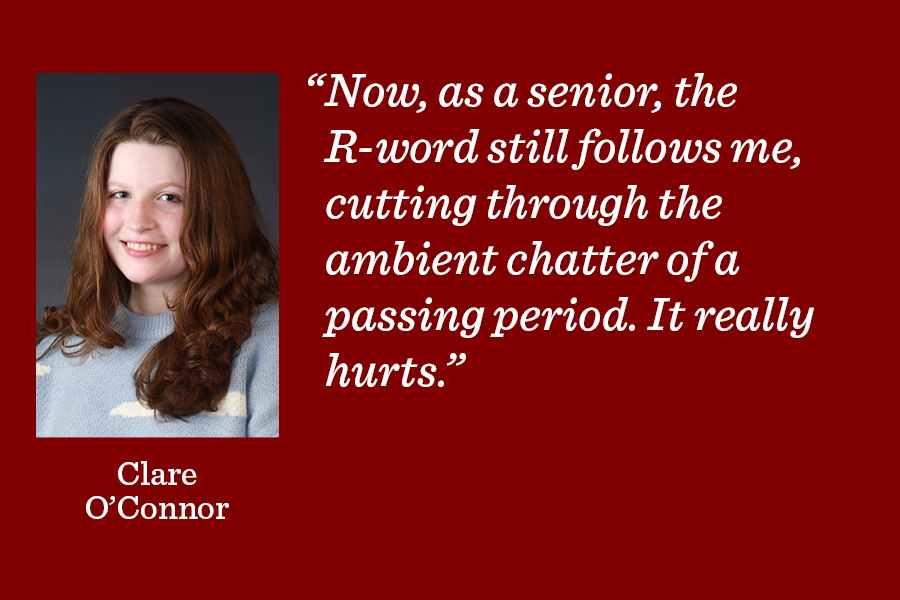The first time I was called the R-word was in second or third grade.
At the time, I only had a vague understanding of what the word meant. I was struggling with several undiagnosed learning disabilities, and every day a few other kids and I were pulled out of class to work on “special reading lessons.” A girl told me that my “special class” made me an R-word. I denied it. I told her that I was “normal” and “smart,” adjectives that, at the time, I felt disproved her statement.
Less than a year later, I was diagnosed with dyslexia, the first of many diagnoses for both physical and learning disabilities.
Now, as a senior, the R-word still follows me, cutting through the ambient chatter of a passing period. It really hurts.
The R-word has long been used as a playground insult, used to mock someone by insinuating they are disabled. Inherent in this usage is the belief that being disabled is something shameful and worthy of ridicule.
The word itself comes from the Latin root meaning to hinder or to slow, and has been used in the English language since the 15th century. In 1961, the American Psychiatric Association adopted the word as a scientific term for people with intellectual disabilities, and as time progressed, the R-word became a blanket term for people with any mental or physical disabilities. In 2010, “Rosa’s Law” was signed by President Barack Obama, replacing in federal laws and regulations any legal usage of the R-word with “intellectual disability.”
I doubt many U-High students use the R-word for the purpose of demeaning people with disabilities. If I pulled aside a student who I heard using the R-word in the halls and asked what the word meant, they would likely tell me that it just means “stupid” or “crazy.” But, if I pressed them and asked where their definition comes from, I believe they would know the answer. Most students aren’t ignorant of the discourse surrounding the R-word, and they know some people say the word hurts. Some students choose to use it anyway.
Still, I don’t blame my peers who use the R-word.
The R-word has been a constant in cultural circles throughout our entire lives. YouTubers, singers and comedians who use the R-word flippantly have served as the backdrop to many Gen Z childhoods.
So I understand it must be difficult to stop saying the R-word, but it’s far from impossible. It’s already easy for students with disabilities and learning differences to feel isolated at U-High, trying to keep up with a rigorous system that wasn’t built for our brains or bodies. Even if you don’t use the R-word to attack people with disabilities, I promise you, other people have. Is a synonym really worth reminding us of the moments we’ve heard it used in anger, or of the knowledge that some people will always see our differences as inherently negative?
If you’ve never questioned your own usage of the R-word, start reflecting. If you’ve only ever responded to hearing the R-word with a frown, start saying something. If you’re a parent, sending your kid to a school full of other people with different lived experiences, start a conversation. Please, from a teenager with disabilities, stop saying the R-word.
This story was originally published on U-High Midway on September 27, 2022.



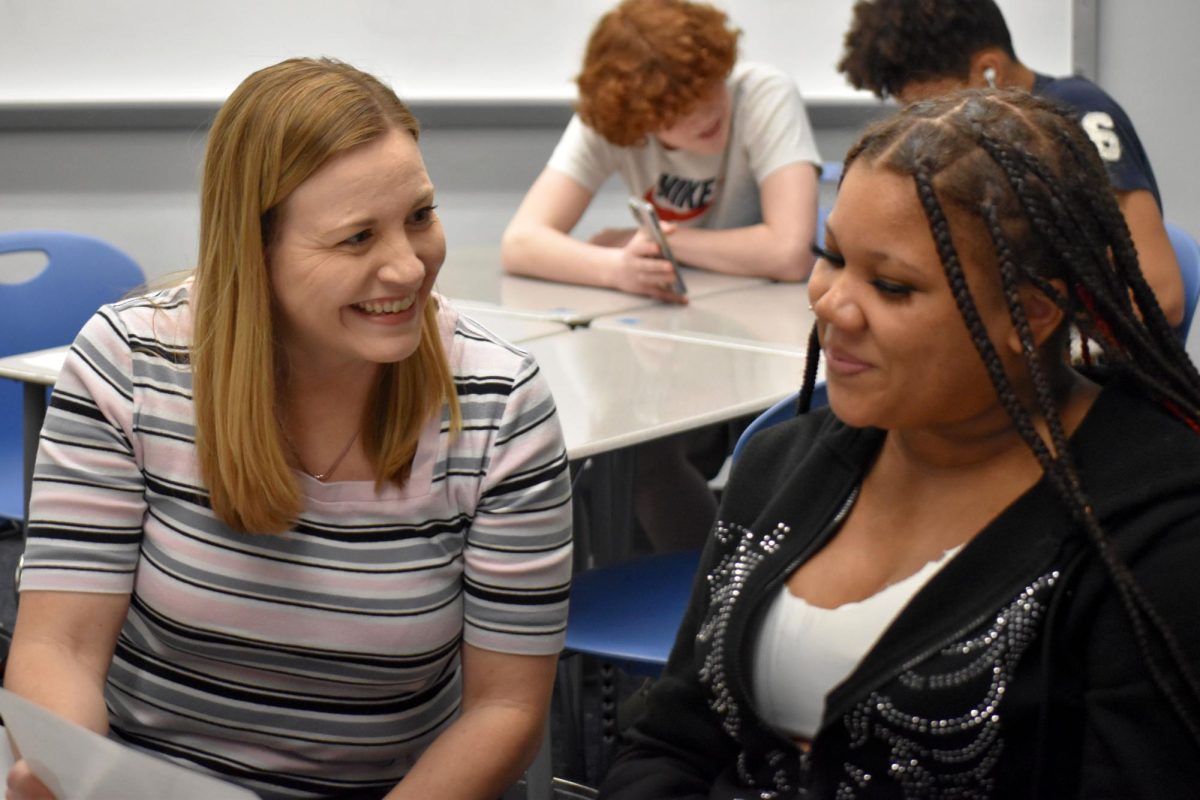
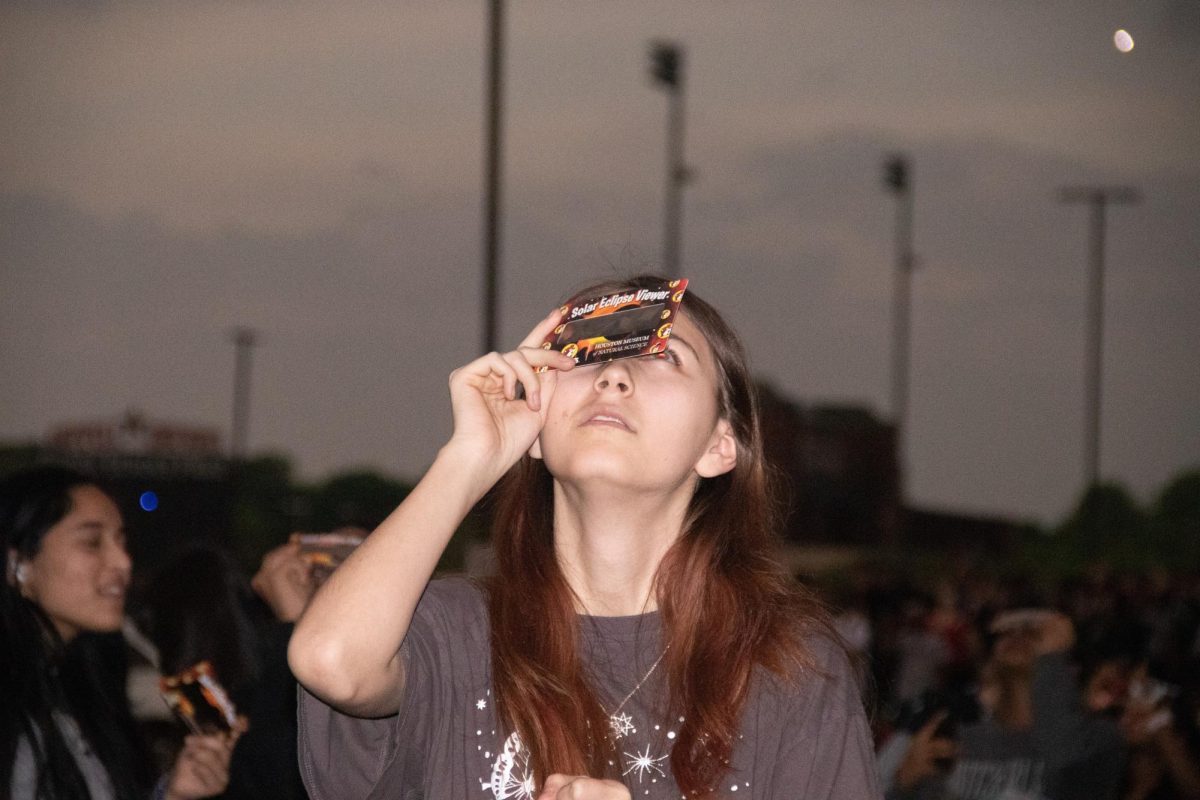










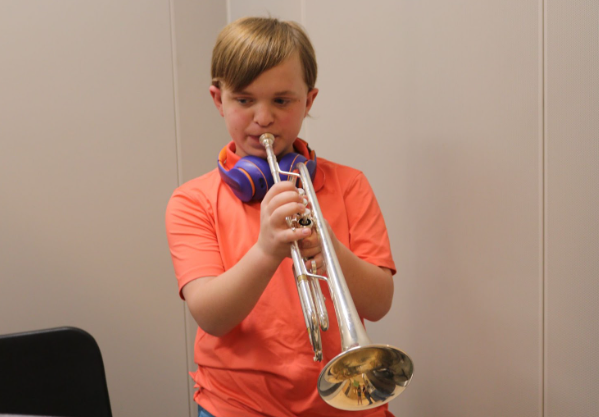
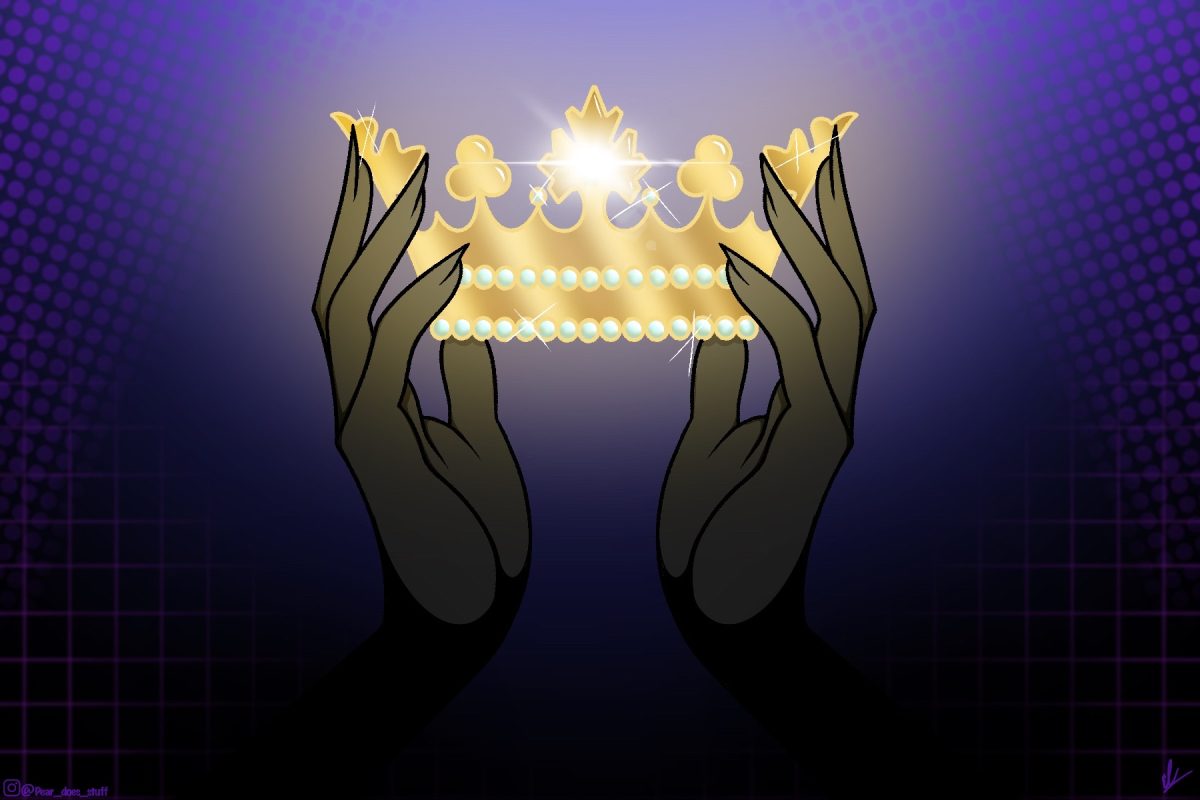
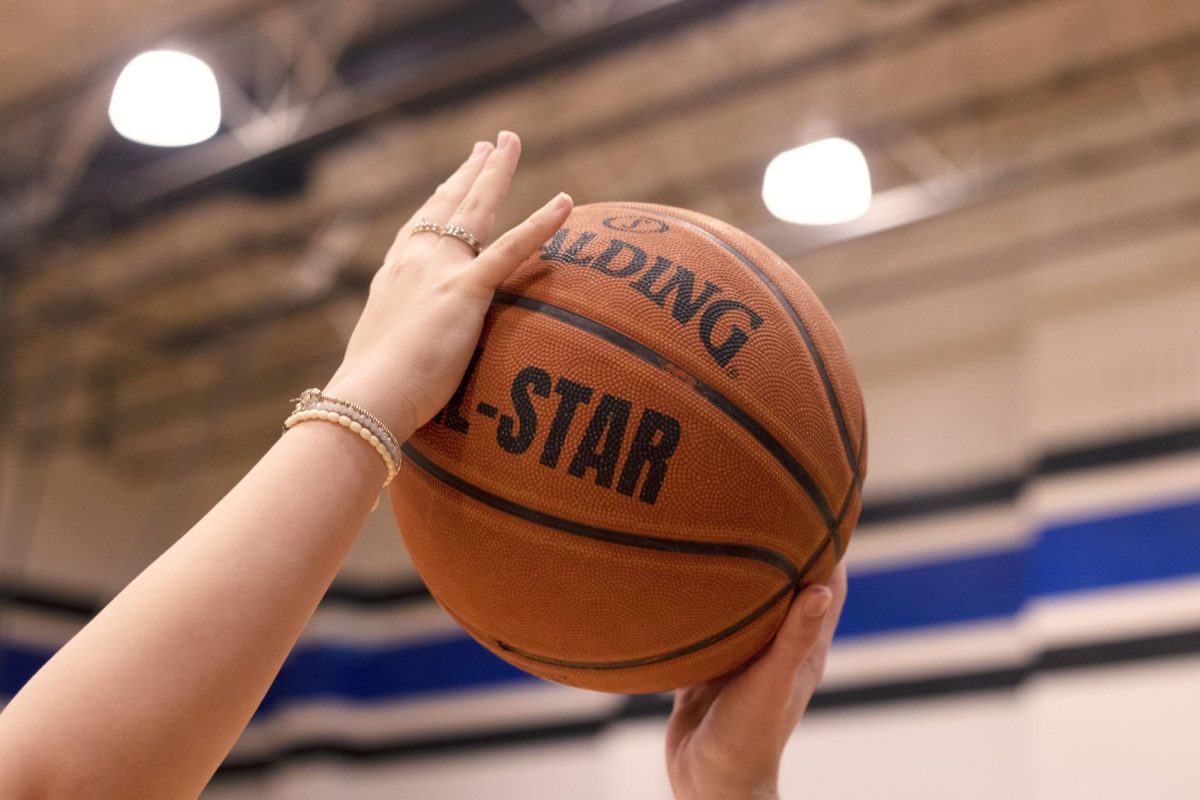


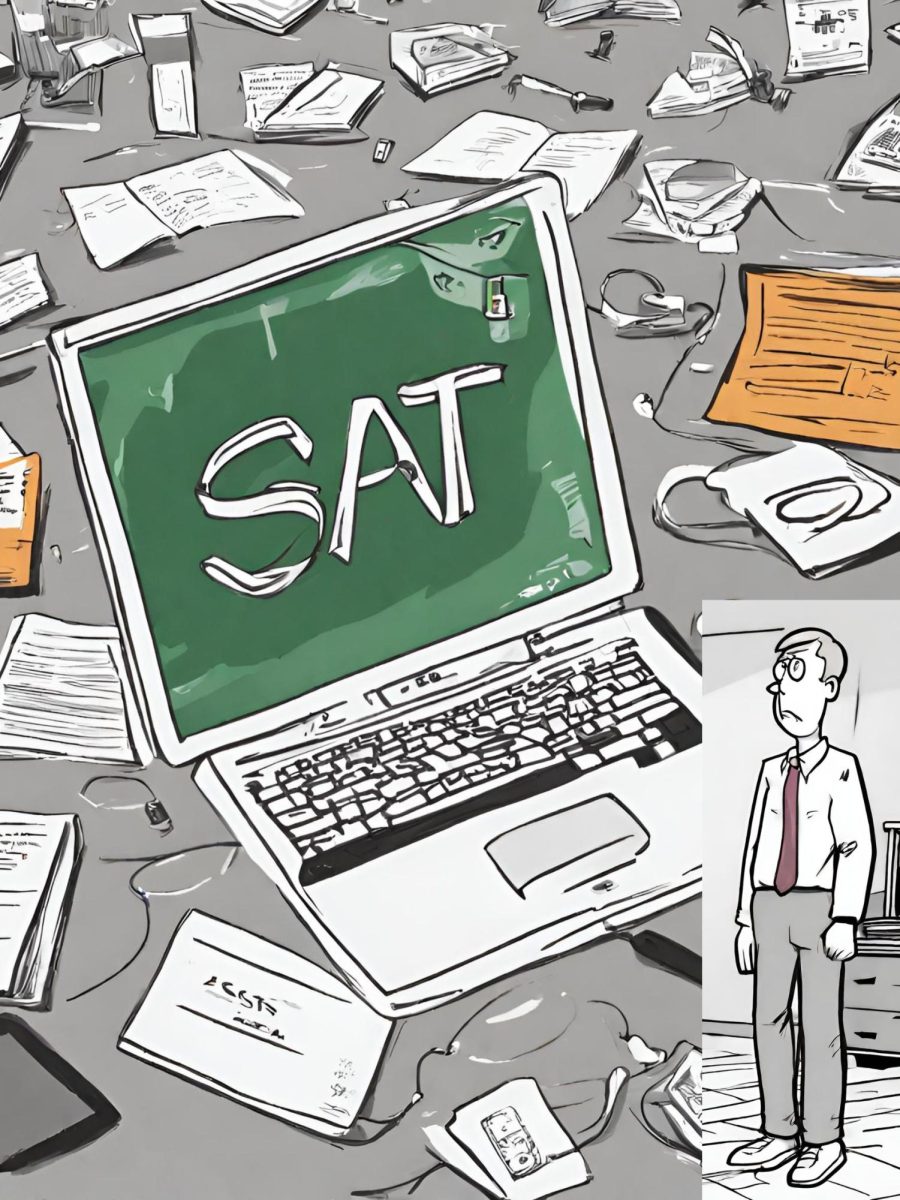








![IN THE SPOTLIGHT: Junior Zalie Mann performs “I Love to Cry at Weddings,” an ensemble piece from the fall musical Sweet Charity, to prospective students during the Fine Arts Showcase on Wednesday, Nov. 8. The showcase is a compilation of performances and demonstrations from each fine arts strand offered at McCallum. This show is put on so that prospective students can see if they are interested in joining an academy or major.
Sweet Charity originally ran the weekends of Sept. 28 and Oct. 8, but made a comeback for the Fine Arts Showcase.
“[Being at the front in the spotlight] is my favorite part of the whole dance, so I was super happy to be on stage performing and smiling at the audience,” Mann said.
Mann performed in both the musical theatre performance and dance excerpt “Ethereal,” a contemporary piece choreographed by the new dance director Terrance Carson, in the showcase. With also being a dance ambassador, Mann got to talk about what MAC dance is, her experience and answer any questions the aspiring arts majors and their parents may have.
Caption by Maya Tackett.](https://bestofsno.com/wp-content/uploads/2024/02/53321803427_47cd17fe70_o-1-1200x800.jpg)
![SPREADING THE JOY: Sophomore Chim Becker poses with sophomores Cozbi Sims and Lou Davidson while manning a table at the Hispanic Heritage treat day during lunch of Sept 28. Becker is a part of the students of color alliance, who put together the activity to raise money for their club.
“It [the stand] was really fun because McCallum has a lot of latino kids,” Becker said. “And I think it was nice that I could share the stuff that I usually just have at home with people who have never tried it before.”
Becker recognizes the importance of celebrating Hispanic heritage at Mac.
“I think its important to celebrate,” Becker said. “Because our culture is awesome and super cool, and everybody should be able to learn about other cultures of the world.”
Caption by JoJo Barnard.](https://bestofsno.com/wp-content/uploads/2024/01/53221601352_4127a81c41_o-1200x675.jpg)





